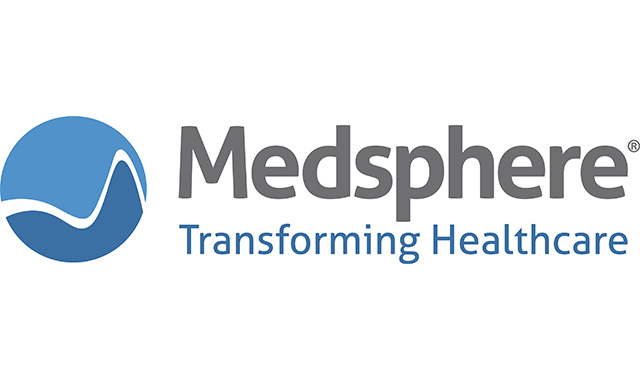
As 2017 begins, around 81 percent of Americans live in urban areas, up from 79 percent in 2000. At the same time, urban and suburban areas where vacant land exists (so, not you, San Francisco) have been expanding, redefining what used to be rural. With this demographic shift comes a transition of resources and tax bases that leave rural areas and rural services, including healthcare, struggling to survive.
Indeed, we can learn a lot about the state of rural healthcare from several access-related statistics:
- As of last year, more than 70 rural hospitals had closed since 2010 and 673 were vulnerable to closure, of which 68 percent were critical access.
- The distance to hospitals in rural America is often much further than in urban areas, sometimes meaning the difference between life and death.
- The number of doctors per 10,000 residents is 13.1 in rural areas and 31.2 in urban environments, simply making care harder to get. With regard to specialists per 100,000 residents, the average is 30 in rural areas and 263 in urban.
- More than half the counties in the country have no practicing psychiatrist, psychologist or social worker to deal with mental health and addiction issues.
More generally, America’s rural population is older, makes less money, smokes more, is less healthy and uses Medicaid more frequently. All these factors dramatically complicate access issues and yield predictable results.
Opioid-related addiction and overdoses, for example, are disproportionately higher in rural areas than in urban. Improvements in the death rate for rural residents have evaporated. For rural white women, death rates have increased as much as 30 percent in recent years, a stunning reversal of previous trends.
Why this is happening is complex and not easily fixed—certainly lack of economic opportunity is a factor, as demonstrated in the recent election—but in many ways technology can make a discernable difference.
Opiate Addiction and Treatment
“While my city patients are well aware of the fact that most physicians consider opiates high risk for addiction, this fact may totally elude my rural patients,” writes Dr. Leonard Sowah in a recent KevinMD post. “I had a few experiences with individuals who were clearly addicted to opiates but would constantly state they were not addicts since they received opiates only from licensed prescribers.”
Certainly, increased awareness and better educational materials will help this situation, but the responsibility will ultimately fall to physicians. Without the Prescription Drug Monitoring Program (PDMP), this would be a near impossible task. The PDMP—a database of electronically prescribed medications and patients that functions in 49 states—makes it possible for doctors to see a patient’s prescription history and identify potential “doctor shopping” and addictive behaviors.
Behavioral Health Treatment
If the National Health Service Corps, which uses loan repayment as incentive for doctors to work in high-demand areas, isn’t doing the trick, what’s next on the list of ideas?
Right now, almost all bets are on telehealth, which has proven effective thus far in treating depression and PTSD. Congress made funding for telehealth a significant part of the recently passed 21st Century Cures Act and is requiring CMS to periodically report back on how telehealth is being used in Medicare and whether or not it is working.
Telehealth may also provide relief on the cost side of the equation for rural hospitals. According to a 2012 Institute of Medicine report, telehealth increases volume, improves care and cuts costs by keeping patients out of the ER and reducing readmissions. To make it really effective, all insurers need to embrace telehealth and all providers need to implement the technology.
Hospital Closures and Access to Care
Telehealth is also one solution to hospital closures, even if it’s not ideal or even effective for every scenario where a hospital would improve or save lives.
Electronic health records (EHRs) and participation in health information exchanges (HIEs) and accountable care organizations (ACOs) offer benefits in terms of streamlining patient care and improving efficiencies, as well as having ready access to best practices and specialists when referrals are necessary.
“The ACO Investment Model was designed to help rural communities move down a path receiving better payment for delivering better healthcare,” said CMS Acting Administrator Andy Slavitt. “In this rural-oriented model, we prepay shared savings to ACOs in rural areas – an oxymoron, but a clear acknowledgement that you need to invest when that’s not always easy and a sign of our willingness to invest along with you.”
No, the ACO Investment program is not a technology, but it is almost completely hamstrung if rural providers don’t adopt technology to make improvements.
Non-technological Factors
Of course, technology alone won’t fix the issues that plague rural healthcare. It’s not magic, after all. Economics and public policy will also come into play.
For example, the slim profit margins, if they exist at all, that rural hospitals create necessitate an affordable EHR system that doesn’t require a huge pile of cash up front to implement. Most hospitals have used Meaningful Use to help pay for those systems, but the unique financial challenges of rural healthcare might necessitate a Stage 3, even though CMS has signaled that the program is about done.
Using policy to assist rural providers is the focus of the recently formed CMS Rural Health Council, which operates with an all-encompassing agenda:
- Improve access to care for all Americans in rural settings
- Support the unique economics of providing healthcare in rural America
- Make sure the health care innovation agenda appropriately fits rural health care markets
A solution that meets all three of those objectives will have to be creative, flexible and effective.
The ongoing changes to American healthcare occur in a time of social and political upheaval, and it will take some time to know whether or not past legislation and upcoming changes to those laws have had a positive impact. If not, the nation may have a difficult decision to make about rural care. If the economics don’t improve and technology can’t make a significant financial difference, what are the alternatives? Can acquisitions by larger hospitals keep facilities alive AND keep costs down?
It’s an important conversation, and solutions will be difficult to hammer out, but what hangs in the balance for the people that grow our food and harvest our energy is essential to the entire nation.
Irv Lichtenwald is president and CEO of Medsphere Systems Corporation, the solution provider for the OpenVista electronic health record.














































